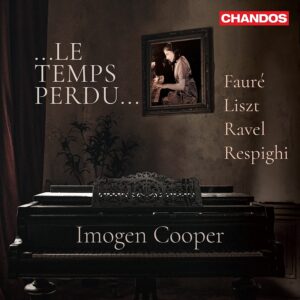Imogen Cooper has put together a recital of pieces she worked on as a student at the Paris Conservatory and with Alfred Brendel in Vienna, but have not been part of her active repertoire. Revisiting one’s pianistic youth can be a tricky thing. In Cooper’s case, it’s like trying to communicate in a language that you were fluent in years ago, yet no longer speak on a daily basis.
For example, Cooper approaches the Ravel selections’ texts as conscientiously and respectfully as possible, never skimming over note values or eliding rests. Yet they still sound effortful and unidiomatic. Telltale signs include those little hesitations and awkwardly placed accents in the Valses nobles et sentimentales introduction, the Sonatine’s heavy-handed outer movements, and a seeming reluctance to let go in Jeux d’eau’s climactic arpeggios.
On the other hand, similar gestures throughout Liszt’s Les Jeux d’eaux à la Villa d’Este convey more convincing sweep, breadth, and continuity. These qualities admirably permeate the Liszt 13th Hungarian Rhapsody’s opening section, but the friska is less than scintillating. Although Liszt’s Lucia di Lammermoor transcription lacks the rhythmic spring and long-lined fluency we hear in Brendel’s early Vox recording, one must acknowledge Cooper’s beautifully shaded trills and well-adjusted runs. To my ears, Cooper’s most relaxed and stylistically attuned playing occurs in her eloquent, perfectly paced Fauré Theme et variations Op. 73 and poetic Respighi Notturno.
Should Cooper wish to venture again outside her Austro/German-centric fach, she’d be ideal for late Fauré, or even late Liszt. Just a thought.
































